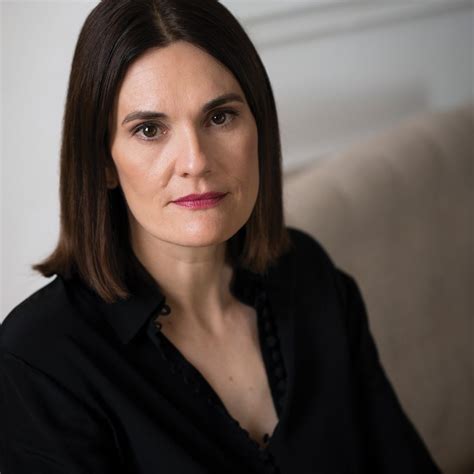A Quote by Katrina Onstad
Many white-collar workers are lucky enough to have creative-class jobs that are satisfying, which is great as long as you're still able to carve out true, work-free leisure at some point. But there's been a kind of sneaky reframing of work as play as the Silicon Valley model has been imported into other fields. Now you see adult offices that look like nursery schools, and staff paintball parties, work cultures that encourage the "We're a family here!" fantasy while preventing workers from going home at a reasonable hour to be with their actual families.
Quote Topics
Able
Actual
Adult
Been
Carve
Class
Collar
Creative
Cultures
Encourage
Enough
Families
Family
Fantasy
Fields
Free
Going
Going Home
Great
Home
Hour
Jobs
Kind
Leisure
Like
Long
Look
Lucky
Many
Model
Now
Nursery
Nursery School
Offices
Other
Out
Parties
Play
Point
Preventing
Reasonable
Reframing
Satisfying
Schools
See
Silicon
Silicon Valley
Sneaky
Some
Staff
Still
True
Valley
Which
While
White
White-Collar
Work
Workers
Related Quotes
The job market of the future will consist of those jobs that robots cannot perform. Our blue-collar work is pattern recognition, making sense of what you see. Gardeners will still have jobs because every garden is different. The same goes for construction workers. The losers are white-collar workers, low-level accountants, brokers, and agents.
It used to be that wealthy people were the leisure class, and having time off was a status symbol. That's switched now: being busy and overworked is the reality for many white-collar workers, and there's a kind of perverse currency to that, competitive busy-ness. At the other end of the income scale, there's a swath of lower-wage workers who are underemployed or unemployed, with too much unwanted leisure, and zero status for that. For shift workers, devices mean they're accessible in ways they weren't before, susceptible to that call from the boss to log more hours.
This society in which knowledge workers dominate is in danger of a new "class conflict" between the large minority of knowledge workers and the majority of workers who will make their livings through traditional ways, either by manual work... or by service work. The productivity of knowledge work - still abysmally low - will predictably become the economic challenge of the knowledge society. On it will depend the ability of the knowledge society to give decent incomes, and with them dignity and status, to non knowledge people.
The size of the U.S. middle class has been shrinking. Wages have been stagnant. We don't have those factory jobs that paid a living wage and enabled a family to have a home where the wife did not have to work. But we sent our factories abroad and there is no likelihood of getting them back. Equally worrisome is that some managerial jobs and professional jobs (such as lawyers) which support middle class life are threatened by automation.
I try to be realistic with students. And say that there's a good chance that they're not going to get a creative writing teaching job, that there aren't enough jobs to go around and the university faculties are cutting back on staff and that they may have to get some other kind of work. None of them wants to hear that, but it is true and I think I'm a good example for them of somebody who took the other route.
I see that very clearly in my own state of Maine, where there are people who have been affected by mill closures, some of which have been brought about by poorly negotiated trade agreements, and they do feel marginalized and left behind. They have not been able to find new work, despite the fact that they did nothing wrong that caused them to lose their jobs. Both parties need to do a better job of reaching out to those individuals, to those hardworking families, and providing job training, matching people and giving them new skills for new jobs.
There are fields of scientific work...which have been explored from the different sides of pure mathematics, statistics, electrical engineering, and neurophysiology...in which every single notion receives a separate and different name from each group, and in which important work has been triplicated or quadruplicated, while still other important work is delayed by the unavailability in one field of results that may have already become classical in the next field.
In the ideology of the new Silicon Valley, work was for the owned. Play was for the owners. There was a fundamental capitalism at work: While they abhorred the idea of being a wage slave, the young men of Silicon Valley were not trying to tear down the capitalist system. They were trying to become its new masters.






































